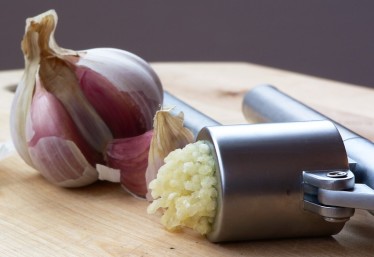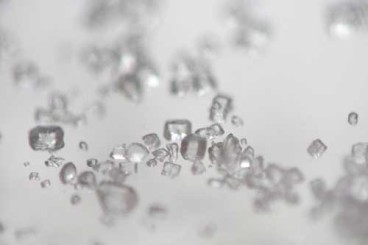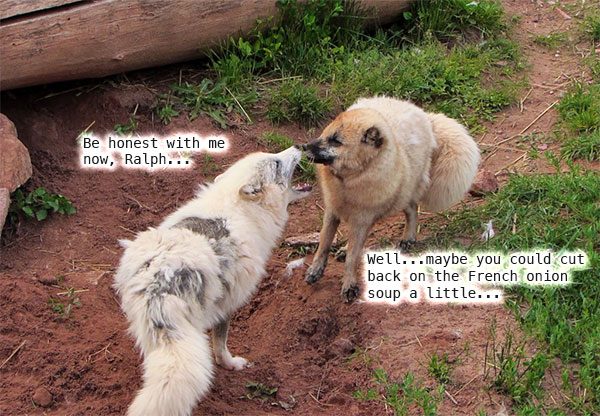Bad breath can put a damper on any situation, whether it be a first date, a job interview, or a trip on an overcrowded bus. Chronic bad breath is known as halitosis and, even if you take meticulous care of your mouth, your dietary choices may ensure that your breath is still not as savoury as you would like.
Fear not! There is an easy way to curb bad breath, and it is as simple as keeping track of certain items in your diet.
The following foods are some of the biggest culprits of creating bad breath. Check them out to see if we can get your breath more minty fresh on the regular!
Coffee
Everyone has heard of or experienced coffee breath, but have you ever wondered why it happens?
Coffee contains caffeine which dries out the mouth and limits the amount of saliva being made. It is also extremely acidic, a property that has been proven to make oral bacteria flourish faster, creating an ideal environment for bacteria to thrive in your mouth.
It is these bacteria that produce unpleasant odours, which can linger in your mouth for longer than other foods due to the decrease in saliva. The saliva helps to wash the smelly stuff away, you see!
Alcohol
Alcohol has a similar effect as caffeine in that it also dries out the mouth and slows down saliva production. Without saliva to wash away oral bacteria, they thrive, and so does their foul smell.
Alcohol in all forms has this effect, and that even includes some mouthwashes.
Mouthwashes that claim to battle your bad breath but contain alcohol can actually have the opposite effect and make your breath worse over time.
Meat, Fish, Eggs, and Dairy
Foods that are high in protein tend to wreak havoc on mouth freshness as the bacteria that feeds on protein produces a kind of sulfur. These protein packed foods include meats, fish, eggs, dairy, and even some nuts and legumes.
The more protein available, the more the bacteria grows and produces its stench.
This can be particularly bad in those who are lactose intolerant and still ingest dairy products because the dairy proteins are not properly broken down during digestion and the bacteria continues to feed off of them, producing their sulfuric smell.
Acidic Foods
Foods that are highly acidic, such as citrus fruits, coffee, vinegar-based foods, tomatoes, and peppers, all help oral bacteria to grow and breed at a faster rate than normal.
This, again, means more bacteria producing in overdrive, and leading to a more pronounced smell.
Garlic, Onions, and Curry

Garlic in particular, is a smell that is extremely difficult to get rid of as the sulfur compounds are absorbed into the bloodstream and come through the skin, lungs, and mouth.
This means that the mouth, breath, and the skin all have a scent of garlic after ingestion.
Sugar
 Sugar causes oral bacteria to be overactive by providing a quickly absorbed food source for them.
Sugar causes oral bacteria to be overactive by providing a quickly absorbed food source for them.
With copious amounts of sugar available, bacteria will thrive and grow, reproducing at a much faster rate than normal.
Sugar is especially dangerous to your oral health because it is a substance that causes bacteria to form into plaque which can cause teeth to decay if not removed. Sugary foods that are sticky are particularly bad for your mouth health as the sugars stick to and in between teeth, providing a long lasting food source for bacteria.
Be sure to remove sugars from the mouth as soon as possible to avoid tooth and gum damage.
Battle That Bad Breath
If you know that you will be enjoying any of these foods, the best defence against the inevitable bad breath is preparation.
- Keep sugar-free breath mints or gum handy, and keep a travel-sized toothbrush and toothpaste in your bag so that you can be minty fresh whenever you like.
- When brushing, be sure to brush not only your teeth but the whole mouth, including the roof of the mouth, inside of the cheeks, and the tongue as bacteria lives in the mouth as a whole, not just between teeth.
- Enjoying these foods with water also helps to wash away the bacteria in your mouth, and therefore lessens their smelly effects.
Keep reading for more tips on how to conquer bad breath.
If your bad breath or halitosis persists or worsens, see a doctor or dentist as there may be a larger medical issue that needs to be addressed.







